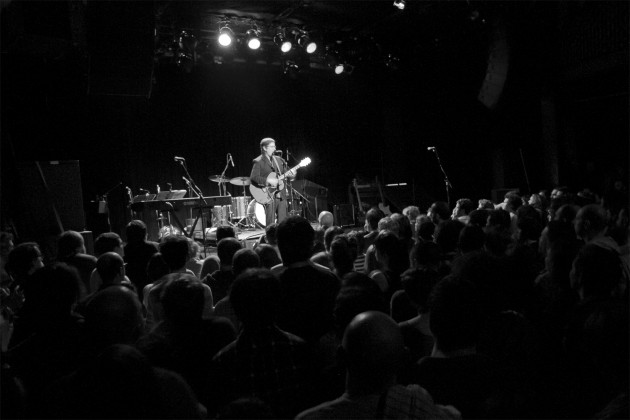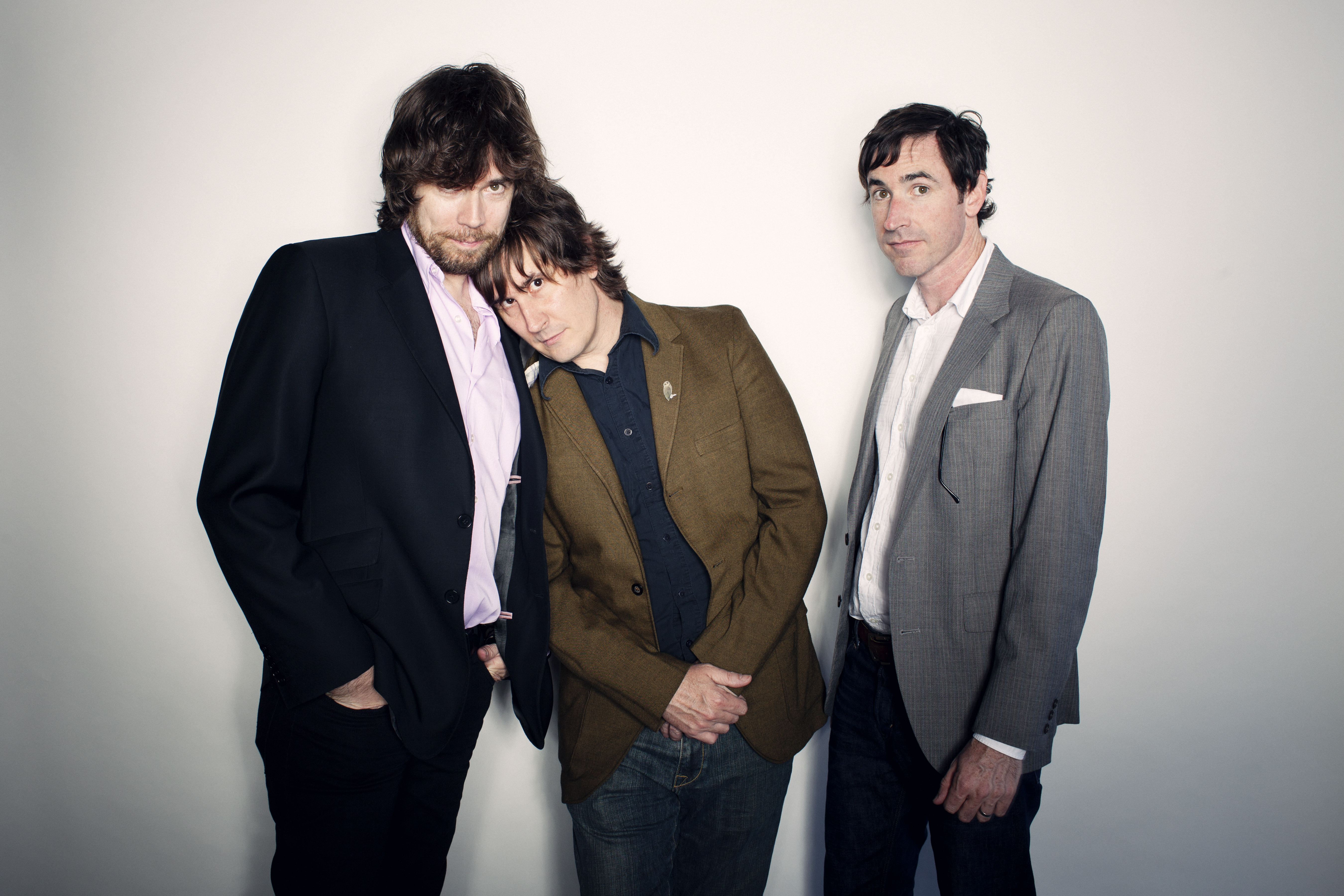 Photo by Nick Pereslugoff. Music Hall of Williamsburg
Photo by Nick Pereslugoff. Music Hall of Williamsburg
JD: Right. That will be a good question in 10 or 20 years. But right now, it’s like asking me what my perspective is on a pill right after I took it, rather than once it’s run through my system. But I’m not blaming you for that, because this is an endemic thing. Like, Teddy Atlas, who’s a totally amazing trainer, does this now too. It’s like where we’re at culturally is that we’re most interested in how somebody feels before they’ve had time to process it, whereas I take a longer view of things. Like when you ask me while I’m recording an album how I feel about the songs. I don’t know! [laughs] They’re not mixed yet. They haven’t had a chance to become what they are, and so I have no idea whether parenting is changing my perspective on what I do. I assume it will, but I think anything I might have to say about it right now will be of limited value.
BPM: You’re right.
JD: But don’t take that the wrong way! You know, I mean, you work your whole damn life to get to the World Series, and you got trades to get a team that could do it, and the team built, and now you’ve won, and I ask you “How do you feel right now?” I mean, c’mon! I’ll tell you in two weeks! [laughs] That’s a huge rant on my part, but I get so mad about that. It’s like you’re standing next to the guy who just took a guy’s face apart, and you ask him what he’s feeling. And the boxing guys who do that– they don’t even want to do that. They’re getting fed that stuff by producers who are high on reality TV.
BPM: Exactly. They want a story to sell. [laughs] Reality TV… So, you’ve got horns on this record. How did that come about?
JD: I saw Matthew White and Fight The Big Bull on this presentation called Sounds Of The South that they did with Megafaun and Justin Vernon and a bunch of people at the Hayti Heritage Center. And Hayti has a whole amazing history that I could talk to you about for a while, but it’s this part of town that was a thriving community – a black part of town – but then they dispossessed everybody and put a freeway through it, and just erased all this history. Well, you can’t erase history, but they did knock all these people all over the place, and the Heritage Center sits where Hayti was. And Megafaun did all these old songs from the South, and it was really something else. Matthew White came down from Virginia with his horns, and I just enjoyed what they did. I put it in the bank and just hollered at him when it came the time and shook hands with him after the show and said “I’d love to talk to you at some point.”
So through Megafaun, who are amazing ambassadors of music in my town; they’ve made a lot of connections – Phil Cook from Megafaun plays piano on “The Diaz Brothers,” because I wrote the song but I can’t really keep time… It’s all eighth notes, and Phil’s a better pianist than I am. But yeah, so I called Matthew and asked him to write four arrangements and he did. Then he brought all those guys down on day 6 of tracking, which is horns day – which is the best because normally when you’re recording a record you show up and you work and work and work all day, but if you bring in ancillary players for a day, you get one day to be on the other side of the glass, just watching these guys play. It’s awesome.
BPM: And they’re going on tour with you, right?
JD: Yeah. Can’t wait. It’s going to be fun with a crowded stage
When you go to make a record, you are going to spend seven to ten days defining your next two years.
BPM: So, you also worked with Owen Pallett and Anonymous 4 for a couple of compositions of tracks from this album.
JD: Yeah, for presentations of the songs in live environments before we recorded it, so that I could sort of live with the songs in different settings and get to know more about them. Because when you write a song, it’s this sort of… it’s kind of like finger painting. It’s a lot more intentional than that, but when you’re done writing a song – for me, anyway, because this is probably not true for everybody – just because you’re the guy who wrote it doesn’t mean you really understand everything that’s going on in it. And I had this idea that if we played them live as a band and I did them in settings that Owen had written them in and so forth, I’d get to know more about them when it came time to record them. I’d have different views of them. Because a song is a pretty loose text. You know this from covering songs. Songs have many ways of being. So I sort of covered my own songs before recording them, so that I could see where they lived and where their hidden parts are.
BPM: Is this like a necessary process for you?
JD: It was just an idea. Just a fun thing to do. This is the thing: when people are making records, people lose track of having fun with the process and get very serious about it and that’s the hardest part about going into the studio, is that when you go in – I’ve said this a lot of times – generally speaking, anything you do on a Tuesday on the job is only going to matter that Tuesday. Maybe if you fuck up, it’ll have some repercussions for you next week, but you’ll outlive them. You’ll live them down and do a better job.
When you go to make a record, you are going to spend seven to ten days defining your next two years. It’s like writing a thesis, sort of, but it’s heavier. It’s like you go in, you go “Okay, here’s The Record,” and consequently because you know that, even for your first record, you take it really seriously, like “I’d better do this right.” It’s a lot of pressure to put on yourself, whereas if you put these songs in these different settings, you remind yourself “Well, have fun with it.” Be loose with it, be open. Bruce Lee, be water. That’s sort of an important way or remembering when you’re writing, you’re not going “I must write this song seriously.” You’re going, “Let’s see if I get a song out of monkeying around on the piano.” And so that was a way of sort of keeping the process open and loose, and remaining open to new possibilities in the songs. So by the time we went to the studio, nothing would be set in stone.

